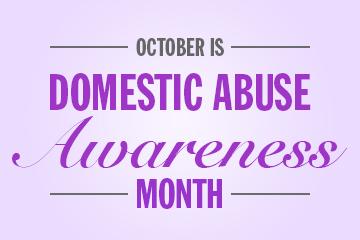
October is Domestic Abuse Awareness Month, a time when the national conversation rightly focuses on the devastating impact of abuse and the resilience of all victim-survivors. But there’s a silence in that conversation that’s hard to ignore: the experiences of older people.
Domestic abuse does not stop at 50, 60 or 80. Yet our laws, strategies and services often behave as though it does. 2.7 million people in the UK are affected by abuse every year. That’s not marginal, it’s millions of lives. And yet older victim-survivors are too often absent from domestic abuse strategies, invisible in service design, and uncounted in national data.
At Hourglass, we see every day how abuse in later life takes shape. A woman in her 70s may stay with an abusive partner because she feels she has no alternative. A man in his 80s may be trapped in a cycle of economic abuse by an adult child on whom he also depends for care. People with dementia or fluctuating capacity may be disbelieved when they try to disclose abuse. These are not edge cases - they are patterns.
What makes this more troubling is the structural ageism baked into our systems. Domestic abuse policy is often written as though the ‘typical’ victim is a younger woman with dependent children. Safeguarding frameworks, meanwhile, treat older victims as passive ‘vulnerable adults’ rather than rights-holders who deserve agency and justice. The result is that older people fall between the cracks: neither fully recognised in domestic abuse strategies, nor adequately protected by safeguarding systems.
This gap is not just an oversight, it is a policy failure. If older victims are invisible in strategy, they remain invisible in funding, commissioning and frontline services. And if we fail to name them, we fail to protect them.
That’s why Hourglass is calling for change. We want to see older victims explicitly recognised in all domestic abuse strategies and action plans across the UK. We want national funding streams to support specialist IDVA roles for older people, just as younger survivors benefit from age-appropriate advocates. We want domestic abuse professionals to receive mandatory training on recognising abuse in later life, including economic abuse and coercive control. We want safeguarding and domestic abuse systems to work together, rather than leaving older survivors caught in between.
Domestic Abuse Awareness Month reminds us that safety, dignity and justice do not have an age limit. If we are serious about ending domestic abuse, we must design systems that recognise older people as rights-holders, listen to their voices, and meet their needs with the same determination we bring to every other survivor.
If you or someone you know is experiencing abuse, support is available. Please contact the Hourglass Helpline on 0808 808 8141, free and confidential, 24/7.
 Shop Now
Shop Now